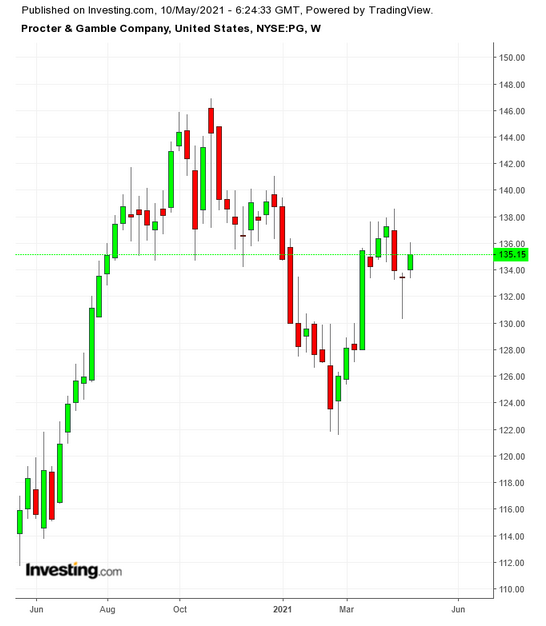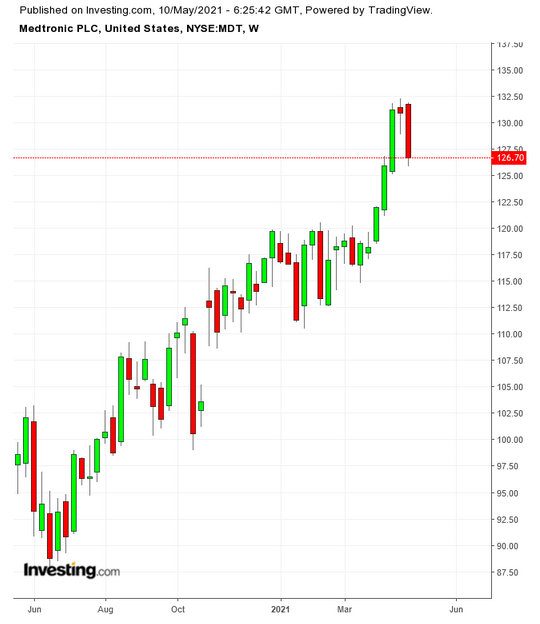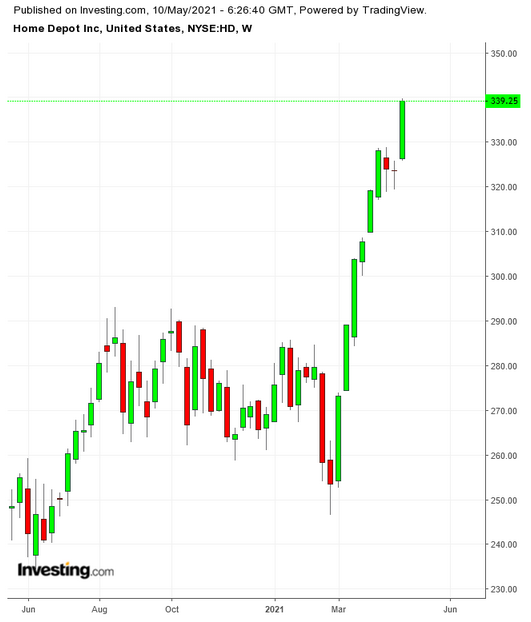Investing for retirement requires a different approach from merely betting on growth or value stocks. The strategy for fixed-income is to buy quality stocks, hold them over the long run and focus on their income-generating capabilities—now and into the future.
That investing style may seem boring to some, especially in an environment where markets are in a long-term bull cycle and there appears to be no end in sight to this relentless rally. But if your investment goal is to build a solid cash stream for retirement, one that you can count on for the rest of your live, then holding some quality dividend stocks in your portfolio is a great idea.
With these factors in mind, below we've short-listed three stocks that income investors could consider buying now. Each offers solid income potential for long-term investors due to their ample cash reserves, healthy balance sheets and reasonable payout ratios.
1. Procter & Gamble
Consumer staples are a great avenue for retirees to earn steadily growing income without taking too much risk. The logic is simple: in any economic shock, consumers are highly unlikely to stop buying things they absolutely need for day-to-day living, such as, toothpaste, toilet paper and dish-washing liquids.

Procter & Gamble (NYSE:PG), the multinational consumer staple manufacturer, is a stock that fits nicely into this category. The Cincinnati-based company is among that small group of firms considered Dividend Aristocrats—businesses that have, for 25 years or more, consistently and consecutively raised and paid out their dividends.
In Procter & Gamble's case, that stat is even more impressive: the company has paid a dividend for 131 years, increasing that payout for 64 consecutive years. With its 2.57% annual yield, it now pays $0.87 a share quarterly dividend after a 10% hike last month. And its payout ratio is a solid 56.35%, which means there's more runway to raise the payout going forward.
Shares of P&G have weakened about 3% this year, closing on Friday at $135.15. Still, the manufacturer of Dawn dishwashing soap, Charmin toilet paper, and Pampers has delivered impressive returns over the past five years, gaining 135%, including dividends.
2. Medtronic
Healthcare stocks are considered relatively safe, regarded as solid income producers. Just like retailers, utilities and garbage collectors, healthcare providers offer services that remain necessary even during a recession. Plus, economic swings don’t typically curb the roll-out of new drugs and devices.

Medtronic (NYSE:MDT) is a lesser known healthcare stock that we like due to the company’s strong market position and its hefty payouts. The world’s biggest medical device maker controls 50% of the global pacemaker market. It’s also a leader in products that assist with spinal surgeries and diabetes care.
No matter which way the economy goes, stocks like Medtronic will continue to churn out cash. The company has a long-term strategy to pay out 50% of its free cash flow to shareholders as dividends. With a 1.83% annual yield, the company pays $0.58 a share quarterly dividend. That payout, on average, has increased over 11% per year during the past five years. As well, the company has a healthy price-to-free cash flow rate of 54.62, lower than the industry average of 86.01.
The Dublin, Ireland-based medical device company is seeing the “best near term set up in years,” according to a recent note from Bank of America. Those positive catalysts include a robust rebound in surgical procedures as the coronavirus pandemic subsides. BoA expects Medtronic to become only the second company behind Intuitive Surgical (NASDAQ:ISRG) to apply for approval of a surgery-assisted robot.
The stock, after gaining 8% this year, closed on Friday at $126.70.
3. Home Depot
Home Depot (NYSE:HD) is one of those retailers that are ideally positioned to continue sending dividend checks to retirees. The home-improvement retailer in recent years invested heavily to prepare itself for the e-commerce onslaught and changing consumer behavior.

Just before the deadly pandemic hit, the Atlanta-based, home improvement chain had completed an $11-billion restructuring plan to modernize the company’s stores, upgrade digital options, and enhance offerings for its key trade customers.
Armed with these upgrades, Home Depot will continue to remain in a growth cycle, especially when factors such as a hot real estate market and the changing ways that people use their homes, are fueling sales of home-furnishing and improvement products.
The company is also a reliable dividend payer. Over the past five years, its quarterly dividend, on average, has expanded 22% per year. With an annual dividend yield of 2%, the company pays a $1.65 a share quarterly payout. And, with a solid payout ratio of 50%, it has much more room to grow.
The stock, which closed on Friday at $339.25, has gained 20% during the past three months.
